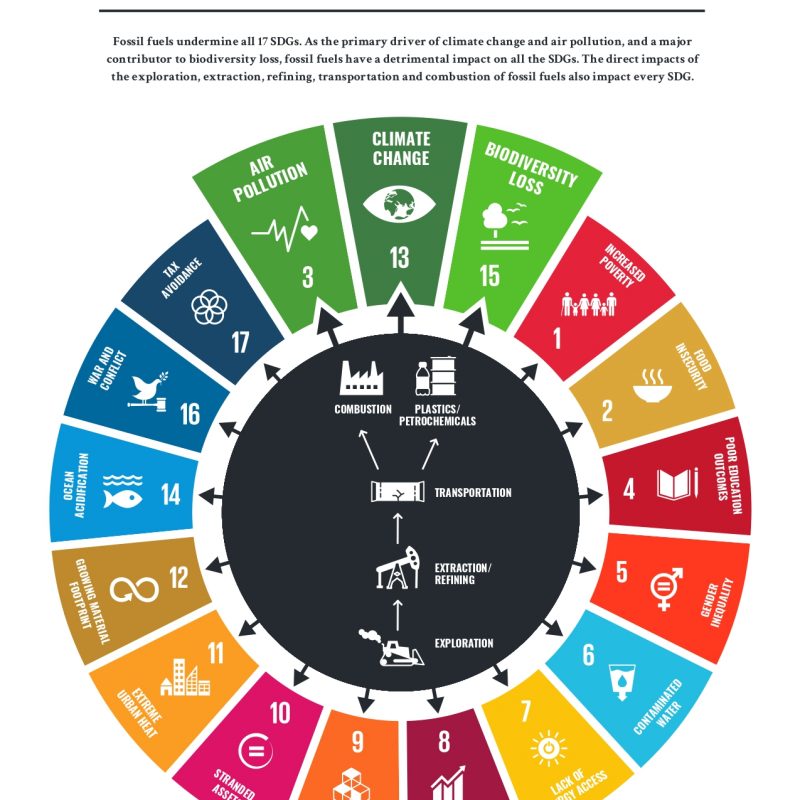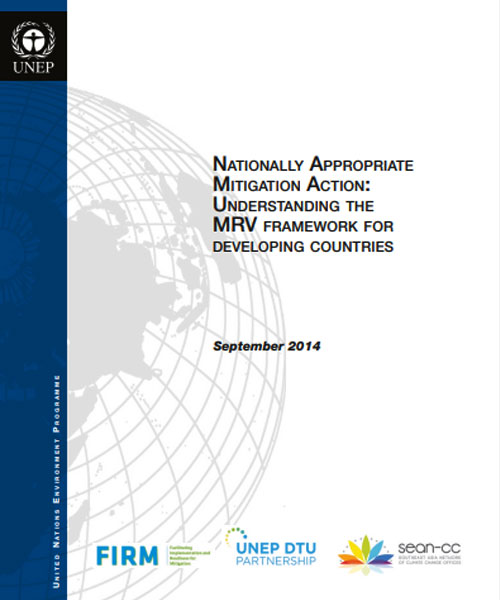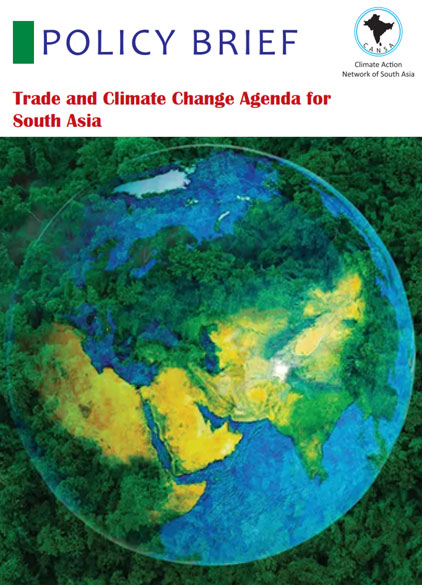Publications - Multilateral Negotiations
EU-INDIA Climate Cooperation Brief
joint summit in May 2020, India and the EU agreed on the “EU-India Strategic Partnership: A Roadmap to 2025”. Climate change and clean energy, as well as the environment more broadly, are a distinct element within that roadmap. Both Parties committed to continue the Clean Energy and Climate Partnership established at the 2016 Summit.

Fuelling Failure: How coal, oil and gas sabotage all seventeen Sustainable Development Goals
The Sustainable Developments Goals (SDGs) were unanimously endorsed and adopted by United Nations member states in 2015. Fuelling Failure is the first report to highlight the dangers fossil fuels pose to the entire sustainable development agenda. It draws on more than 400 academic articles, civil society reports and case studies from affected communities […]

Global Narratives of Climate Change
PDF A large body of research shows that people accept the challenge of climate change and become motivated to take action once they have understood it through the lens of their own values and culture. However, surveys show that climate communications have failed to speak well to values and cultures beyond a narrow […]

Climate Change Policy? For a Better Understanding of India’s and Germany’s Approaches and Positions
without doubt, difficult to compare India and Germany as the cultural and socio-economic differences are striking. With this paper, Germanwatch and CANSA seek to introduce some of the backgrounds to the different climate policy approaches of India and Germany with a view to the ambitious and equitable implementation of the Paris Agreement.

Opportunities for Indo-German Co-operation in Bilateral and Multilateral Environment and Development Policy
Bilateral Indo-German cooperation has proven to build mutual understanding and trust in finding solutions in international negotiations. Bilateral cooperation experience has provided learning and confidence for various negotiation items at UNFCCC. A fruitful implementation of the Indo-German Solar Partnership would build further evidence for healthy bilateral cooperation and would support implementing the Paris […]

Low-Carbon Development Co-operation between India and Germany
PDF The Potential of Creating Low-Carbon Development Strategies Together.Indo-German cooperation on low-carbon development can reach far beyond should dialogue on and provision of German support for an Indian low-carbon energy mix. Germany, in turn, should seek inspiration from India as well. An Indo-German dialogue on low-carbon development should therefore allow exchange in partnership […]

India’s Triple Challenge: Growth, Development and Climate Change
India’s goals for economic growth are ambitious; the Indian Government is aiming to achieve human development on a par with EU countries. There is also an intention to deliver ‘access to electricity for all’ in India during Prime Minister Narendra Modi’s first term in office. At the same time, India is a country […]

Understanding the Nationally Appropriate Mitigation Action: Developing Country Mitigation Framework under the Convention
The paper titled “Understanding the Nationally Appropriate Mitigation Action: Developing Country Mitigation Framework under the Convention” aims to provide a comprehensive overview of the Nationally Appropriate Mitigation Action (NAMA) framework and enhance the understanding on NAMAs by explaining the Conference of the Parties (COP) decisions in layman’s terms. The paper is intended to […]

Assessment of SAARC Thimphu Declaration on Energy and Climate Change
Key Declarations from the SAARC Summit, Thimphu on Climate and Energy.a) Undertake advocacy and awareness programmes on climate change, among others, to promote the use of green technology and best practices to promote low-carbon, sustainable and inclusive development of the region. b) Commission a study to explore the feasibility of establishing a SAARC […]

Trade and Climate Change Agenda for South Asia
The relationship between trade and climate change has come under increasing attention as the urgency of national, regional, and global actions intensifies with predictions of climate change impacts getting ever grimmer. The relationship has several dimensions: for example, the physical impacts of trade on climate change and vice versa; linkages between climate change […]





